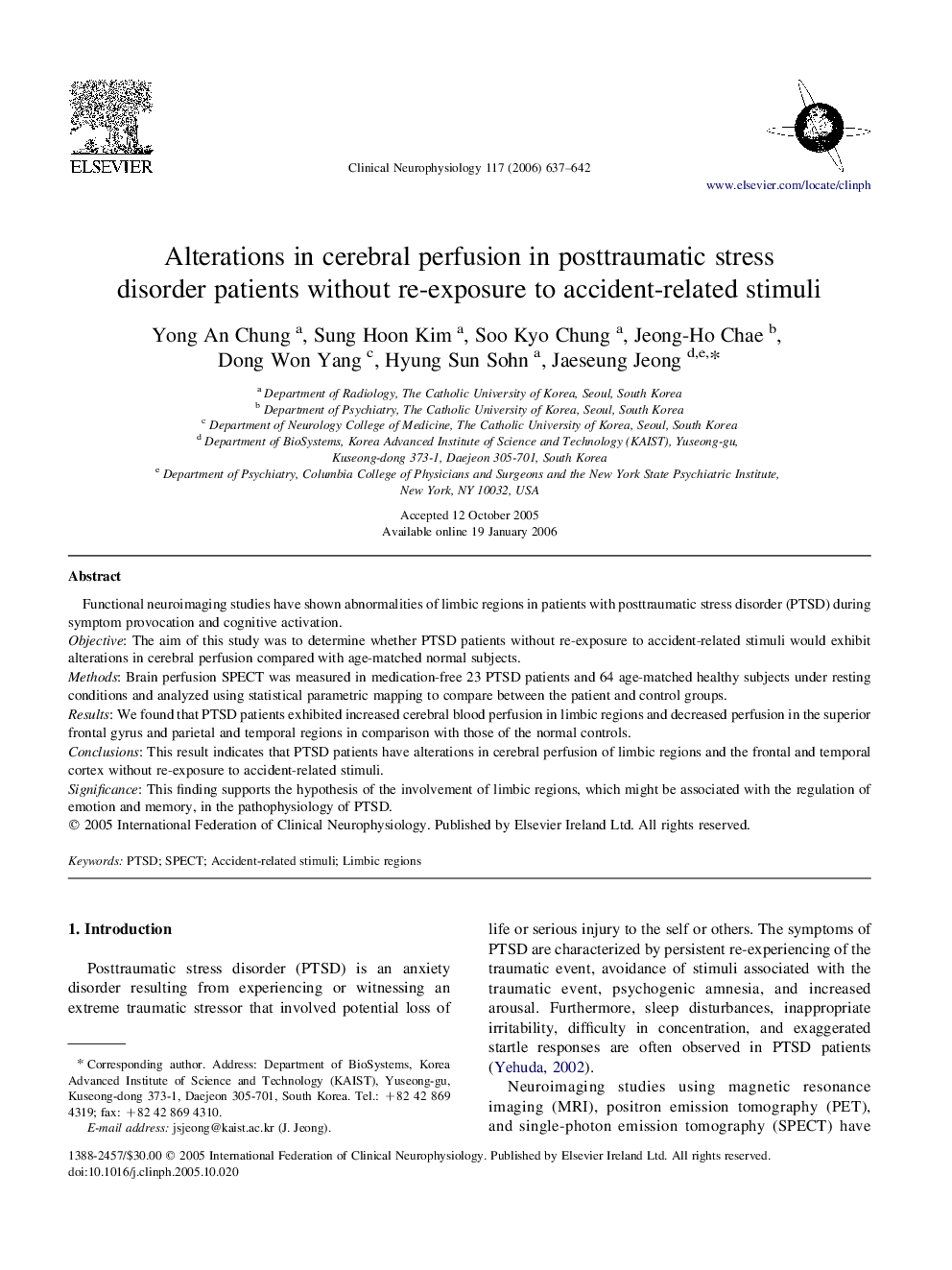| Article ID | Journal | Published Year | Pages | File Type |
|---|---|---|---|---|
| 3048434 | Clinical Neurophysiology | 2006 | 6 Pages |
Functional neuroimaging studies have shown abnormalities of limbic regions in patients with posttraumatic stress disorder (PTSD) during symptom provocation and cognitive activation.ObjectiveThe aim of this study was to determine whether PTSD patients without re-exposure to accident-related stimuli would exhibit alterations in cerebral perfusion compared with age-matched normal subjects.MethodsBrain perfusion SPECT was measured in medication-free 23 PTSD patients and 64 age-matched healthy subjects under resting conditions and analyzed using statistical parametric mapping to compare between the patient and control groups.ResultsWe found that PTSD patients exhibited increased cerebral blood perfusion in limbic regions and decreased perfusion in the superior frontal gyrus and parietal and temporal regions in comparison with those of the normal controls.ConclusionsThis result indicates that PTSD patients have alterations in cerebral perfusion of limbic regions and the frontal and temporal cortex without re-exposure to accident-related stimuli.SignificanceThis finding supports the hypothesis of the involvement of limbic regions, which might be associated with the regulation of emotion and memory, in the pathophysiology of PTSD.
